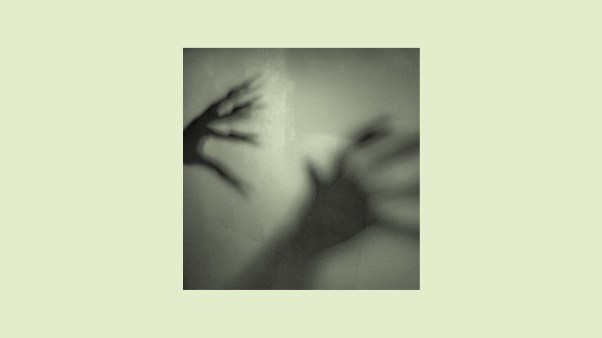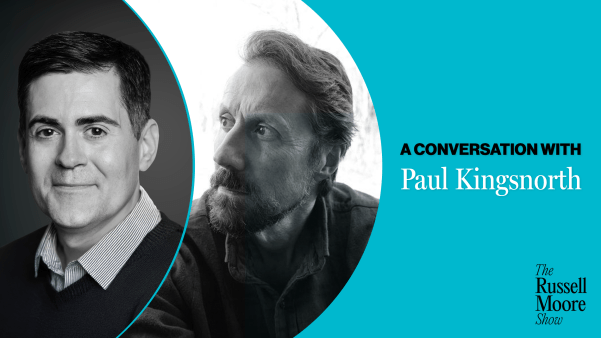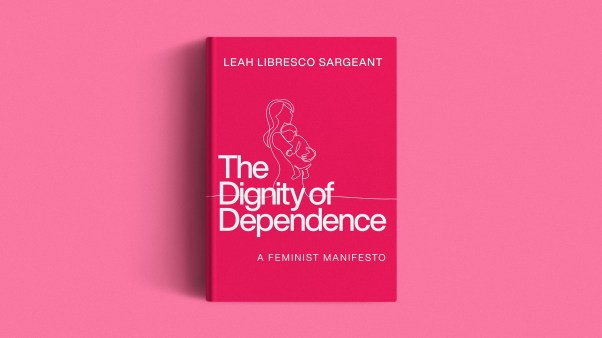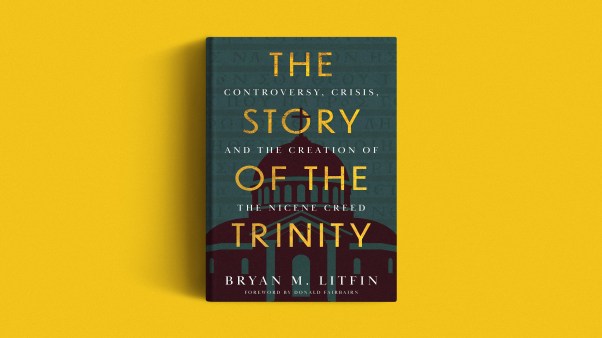Given the usual media treatment of things evangelical, it was stunning to see the cover story in this month’s Atlantic Monthly, “The Opening of the Evangelical Mind,” by Boston College’s Alan Wolfe: a substantial, fair-minded article by a sympathetic yet not uncritical outsider, the like of which I can’t recall. Wolfe’s essay includes a brief but generous mention of Books & Culture, and for some readers that will disqualify me from further comment. Never mind. In any case what interests me here is not the details of the essay, provocative as those are; rather, should we regard its appearance as heralding a significant change in the way evangelicalism figures in what is wistfully called “the national conversation,” or is Wolfe’s thoughtful engagement with the evangelical mind merely an anomaly?
In the early responses to Wolfe’s essay, alas, there are signs that we may be returning to business as usual. Consider, for example, Judith Shulevitz’s Slate essay, “Alan Wolfe Turns Evangelical.” Shulevitz notes that Wolfe’s article does not discuss the Intelligent Design movement. But she doesn’t simply note this omission: she charges Wolfe with flagrant intellectual dishonesty, claiming that he deliberately suppressed any mention of the Intelligent Design movement because he wanted to make evangelical thought “seem better than it is.”
The idea is that Intelligent Design is a skeleton in the closet, a terrible embarrassment to evangelicals, who haven’t progressed so far after all from the days of the Scopes trial. If Wolfe had acknowledged the existence of this embarrassment, you see, his carefully constructed case for the newly found intellectual respectability of evangelicalism would fall apart.
Oddly, while charging Wolfe with one of the cardinal sins of scholarship and journalism alike, Shulevitz’s short essay is riddled with errors that bespeak a casual contempt for her subject. She hasn’t bothered to do her homework. She refers to “theologian Mark Noll,” though minimal research would confirm that he is a historian, not a theologian. (Evidently she was misled by Noll’s title at Wheaton and his stint at Harvard Divinity School, reported in Wolfe’s essay.) She calls Baylor University one of the “top evangelical schools,” basing that description on Wolfe’s own brief references to Baylor. Perhaps if Baylor President Robert Sloan is able to continue on his course of recruiting leading evangelical scholars and reconnecting Baylor with its Baptist heritage, that description may someday be true. Today it is not.
More seriously, Shulevitz’s account of the reception of the Intelligent Design movement within evangelicalism is grossly misleading. “The precepts of the movement,” Shulevitz writes, “are taught at Wheaton and Fuller Seminary Theological Seminary in California and Baylor University in Texas.” How the ID movement wishes that were substantially true! In fact, the science faculties at most evangelical institutions are resolutely opposed to ID, a matter of great frustration to the movement’s proponents. Fuller Seminary’s most prominent voice on this subject is the philosopher of science Nancey Murphy, a harsh critic of Phillip Johnson and of the ID movement more generally. At Baylor University, in a flap nationally reported in The Chronicle of Higher Education, among other places (including Wolfe’s essay), the science faculty sought to oust a newly established think-tank headed by ID leader William Dembski.
The subject Shulevitz identifies is indeed an interesting aspect of the evangelical intellectual revival—but it is interesting in part because of the conflicts it reveals. A majority of Christians in the sciences, including evangelicals (and evangelicals are much more heavily represented in the natural sciences at secular colleges and universities than in the humanities or the social sciences), accept so-called methodological naturalism. Whether they are right to do so is a matter of often contentious debate within the evangelical community.
When it comes to explaining why ID should be such an intellectual embarrassment in the first place, Shulevitz is again unreliable. She rests her case on Kenneth Miller’s 1999 book, Finding Darwin’s God: A Scientist’s Search for Common Ground Between God and Evolution, which she refers to as “a definitive refutation” of creationism and ID. “It would be hard to overstate the value of Miller’s book to anyone attempting a serious consideration of new Christian thought,” Shulevitz writes.
Well, it can’t be that hard to overstate the value of Miller’s book, because that is exactly what Shulevitz does with no apparent strain. Miller is an impressive scientist, and he may prove to be right, for example, in his critique of Michael Behe’s argument for “irreducible complexity.” But he hasn’t yet reduced Behe to quivering jelly—has Shulevitz seen Behe’s response to Miller at the Discovery Institute’s Web site?—and it is wishful thinking or simply more bad reporting to suggest that the case is closed. Indeed, with the appearance of books such as Dembski’s The Design Inference from Cambridge University Press (which prompted a rejoinder from the philosopher of science Elliott Sober), the Intelligent Design debate appears to be more lively than ever.
Critics such as Shulevitz have set the tone in the past for public discourse about evangelicalism, but they don’t deserve all the blame. There are all too many voices from within the evangelical world that play right into the reigning stereotypes. A case in point is Gene Edward Veith’s tub-thumping response to Wolfe in World magazine, “Whose Mind Needs Opening?” Citing Wolfe’s criticism of faith statements at evangelical colleges, Veith asserts that “what progress evangelical colleges have made [in the direction of intellectual vitality] is due directly to their having statements of faith. Their lapses come from trying to get around them.”
With that astonishing claim, Veith rewrites the history of twentieth-century American evangelicalism. Know-nothing fundamentalism? Never heard of it. The scandal of the evangelical mind? What scandal?
Now it is certainly true that non-negotiable faith commitments are essential to preserve the identity of evangelical colleges—else what makes them “evangelical”? On that point Veith and I are completely in agreement. But faith statements constructed by this or that body do not have the status of the historic creeds, let alone Scripture itself, and all too often such statements have reflected homespun hermeneutics and local pressures. Many evangelical professors who sign such statements do so in assent to the spirit of what is being affirmed, not the letter.
It is bad enough to deny that there is any tension between such institutional faith statements and intellectual freedom—Christian freedom—but it is truly and wildly perverse to claim that insofar as evangelical colleges have failed in the direction of intellectual vitality, their failure can be attributed to “trying to get around” their statements of faith! Rather than deny the very existence of this tension, I believe it is the calling of evangelical scholars and intellectuals to embrace it, recognizing that we will never resolve it in this earthly life.
In an editor’s note to the very first issue of Books & Culture (September/October 1995), I quoted the Native American poet Joy Harjo: “There’s no sense engaging evangelical Christianity. You can’t engage something like that, because they don’t encourage interaction and thinking for youself.” Having heard Harjo read her spellbinding, incantatory poetry, I hoped that the first issue of B&C might change her impression of evangelicals. But then again, maybe not, since
Christians—not only evangelicals, but all those who affirm the central tenets of the faith—are distinguished precisely by their disbelief in the ability of human beings to think for themselves. The more strenuously, the more proudly a person proclaims that freedom, the more surely, like Raskolnikov, he is in the grip of sin.
Isn’t it just this humbling understanding of the reality of sin, and the transcending reality of grace, that evangelicals should bring to the table for the “genuine intellectual exchange” envisioned by Alan Wolfe? May it be so.
Related Elsewhere
Visit Books & Culture online at BooksandCulture.com or subscribe here.
Alan Wolfe’s “The Opening of the Evangelical Mind” (Atlantic Monthly), Judith Shulevitz’s “Alan Wolfe Turns Evangelical” (Slate), and Gene Edward Veith’s “Whose Mind Needs Opening?” (World) are all available online.
The Discovery Institute’s Center for the Renewal of Science and Culture has another response to Shulevitz’s article, which it calls a “bigoted rant” and notes that “Slate has already begun editing out her gaffs.”
The Christianity Today Weblog commented on Wolfe’s article shortly after the article was published.
Those with access to a Christian college library may be interested in Nancey Murphy’s “Phillip Johnson on Trial: A Critique of His Critique of Darwin,” which was published in the March 1993 issue of Perspectives on Science and Christian Faith. The article does not appear to be available online.
See also John Wilson’s recent Christianity Today article, “Your Darwin Is Too Large | Evolution’s significance for theology has been greatly exaggerated” (May 25, 2000)
Books & Culture‘s articles on science are available here.
Books & Culture Corner appears Mondays at ChristianityToday.com. Earlier Books & Culture Corners include:
The Light Still Shines | A Harvard-sponsored conference looks at the future of religious colleges. (Oct. 9, 2000)
RU-486 Uncovers a Lie—And It’s Not Just About Abortion | Think the abortion pill is indicative of postmodernity? You’re wrong. (Oct. 2, 2000)
Pencils Down Part II | Think your vote matters? You poor, misguided fool. (Sept. 18, 2000)
Pencils Down, the Election’s Over | According to political scientists, Al Gore has already won. (Sept. 11, 2000)
Humans and Other Animals | How much do we share with the birds of the air and the beasts of the field? (Aug. 28, 2000)
Cardinal Mahony’s Baloney Sandwich | The public face of Catholic social teaching. (Aug. 21, 2000)
In Praise of Miscegenation | Racial categories don’t mean what they used to. Hallelujah. (Aug. 14, 2000)
“Give ‘Em Hell, Harry!” | Looking back at the 1948 presidential campaign. By Elizabeth Jacoway (Aug. 7, 2000)
Roaring Lambs | The Evangelical Culture of Euphemism, Part 3. (July 31, 2000)
The Evangelical Culture of Euphemism, Part 2 | Should we distinguish between public and private discourse? (July 24, 2000)
Copyright © 2000 Christianity Today. Click for reprint information.








